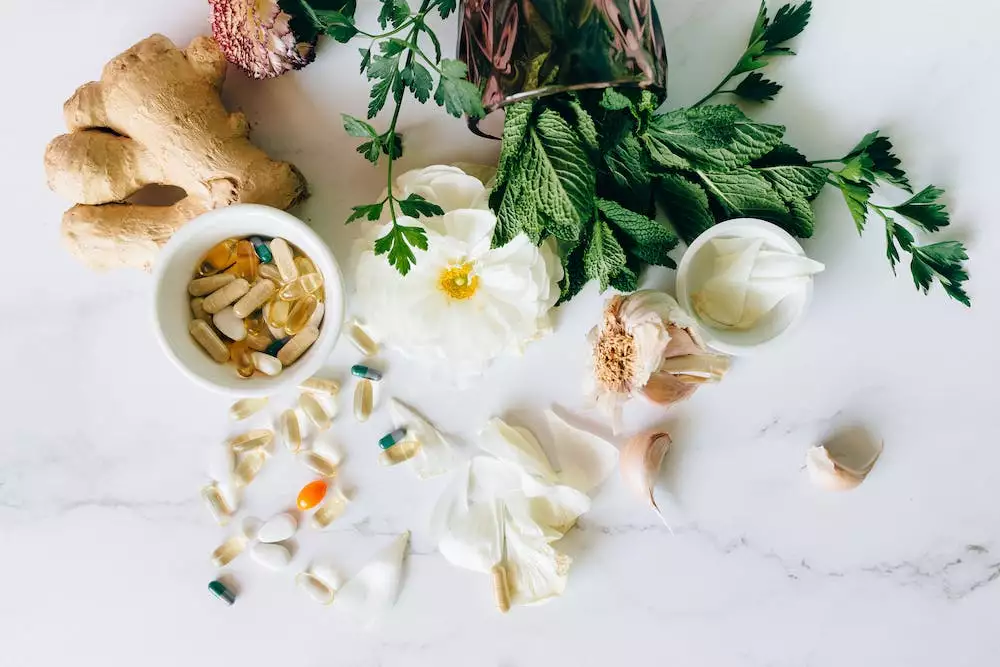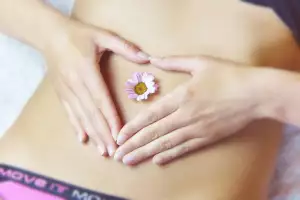Hemorrhoids treatment: effective methods for getting rid of this unpleasant problem

- What are hemorrhoids and how do they form
- Symptoms and diagnosis of haemorrhoids
- Prevention of haemorrhoids
- Conservative treatment of hemorrhoids
- 1 Dietary changes
- 2 Medicines and ointments
- 3 Topical treatments
- Progressive treatment for hemorrhoids
- 1 Hemorrhoid Ligation
- 2 Sclerotherapy
- 3 Cryotherapy
- 4 Infrared Photocoagulation
- 5 Surgical procedures
- Alternative methods of treating haemorrhoids
- 1 Herbal Remedies
- 2 Acupuncture
- 3 Homeopathy
- How to prevent recurrence of haemorrhoids
- Resources
Hemorrhoids are an unpleasant health problem that can affect anyone, regardless of age or gender. These afflictions appear as swollen blood vessels in the rectum and anus, which can be very painful and bothersome for daily life. However, there are several ways to successfully combat this problem and find relief. In this article, we will discuss the treatment of hemorrhoids using different methods and approaches to help you get rid of this annoyance.
What are hemorrhoids and how do they form
Hemorrhoids are internal or external nodules that are located in the rectal area. These nodules contain blood vessels and a venous plexus called the hemorrhoidal plexus. When this plexus is congested due to various factors, hemorrhoids can form. Some of these factors include being overweight, sedentary lifestyle, pregnancy, prolonged use of laxatives or eating low-fiber foods. Hemorrhoids can be very painful and uncomfortable and can lead to problems such as bleeding, itching and burning. There are many treatments for hemorrhoids, such as diet and lifestyle changes, ointments and creams, or surgery. It is important to remember that prevention is key in minimizing the occurrence of hemorrhoids.
Symptoms and diagnosis of haemorrhoids
Hemorrhoids are a health problem that affects many people. Symptoms that may indicate the presence of hemorrhoids include itching, burning and soreness in the rectal area. When bleeding from the rectum, the patient should consult a digestive health specialist as soon as possible. Diagnosis of hemorrhoids is made on the basis of physical examination and endoscopic examinations, which will help determine the extent and degree of tingling. Proper diagnosis and treatment are key to the successful treatment of hemorrhoids and reduce the risk of further complications such as bleeding.
Prevention of haemorrhoids
Prevention of hemorrhoids is key to minimizing potential complications and reducing the risk of developing this health disorder. One of the most important preventive measures is maintaining regular digestion through the consumption of adequate amounts of fiber and drinking. It is also important to avoid overexertion during defecation, which can be achieved by changing the diet, adding physical activity to the daily regimen, and proper posture during exercise. Other precautions include regular pelvic muscle exercises, modification of sedentary posture and use of less aggressive toilet papers. If you are prone to hemorrhoids or have struggled with this disorder before, it is recommended to consult a gastroenterology specialist for additional prevention options.
Conservative treatment of hemorrhoids
Hemorrhoids are a health problem that can be uncomfortable and painful. Conservative treatment involves using various methods without surgery. These methods include dietary changes, exercise, and medications to relieve symptoms. The diet should be rich in fiber and fluids to minimize stool formation and relieve pain. Exercise can help improve circulation in these areas and reduce the risk of further complications. Medications can help relieve pain and itching, but are not intended to permanently solve the problem. Conservative treatment of hemorrhoids should be the first step before considering surgical solutions.
1 Dietary changes
Changing your eating habits can be a very effective way to help treat hemorrhoids. A high intake of fiber from fruits, vegetables and whole grains can help regulate digestion and reduce constipation, factors that can cause hemorrhoids. In addition, alcohol and caffeine intake should be limited, which can irritate the bowels and lead to worsening of hemorrhoid symptoms. Therefore, if the goal is to return to normal functioning of the body and get rid of hemorrhoid problems, it is necessary not only to follow the recommended procedures of the doctor, but also to actively modify one's eating habits.
2 Medicines and ointments
To treat hemorrhoids effectively, it is important to use the right medicines and ointments. There are many products on the market that can help with this problem. Among the most commonly used are ointments containing hyaluronic acid or heparin, which reduce inflammation and swelling around hemorrhoids. Another option is medication in tablet form, which helps to improve stool patency and relieve pain. However, it is important to make sure that they are used only as recommended by your doctor and never exceed the recommended dose. Only in this way can the best results be achieved and this unpleasant disease be managed quickly.
3 Topical treatments
There are several topical hemorrhoid treatment options that can help relieve symptoms and speed healing.
1. Ointments and creams: This form of treatment focuses on relieving pain, itching, and inflammation in the anus area. There are different types of ointments and creams that contain active ingredients such as hydrocortisone or lidocaine.
2. Anus bath: Sitting in a tub of warm or cold water can also help relieve uncomfortable hemorrhoid symptoms. Warm water relaxes the muscles and improves blood circulation, which helps reduce swelling and pain.
3. Hemorrhoid pads. They are available in a variety of shapes and sizes and can be used while working or relaxing.
While these methods can be effective ways to relieve hemorrhoid pain, it is important to remember that if problems are severe or recurring, it is imperative to seek medical attention.
Progressive treatment for hemorrhoids
Hemorrhoids are a painful and uncomfortable condition that affects many people. Progressive treatment of hemorrhoids is key to achieving relief and eliminating symptoms. There are many ways to treat hemorrhoids, including conservative methods such as lifestyle changes, diet and exercises to strengthen the pelvic floor muscles. If these methods do not lead to the desired result, advanced treatment methods may be used. This includes minimally invasive procedures such as sclerotherapy and ligation of hemorrhoids with rubber bands, as well as surgical interventions such as hemorrhoidectomy or stapling. It is important to remember that each person is unique and what works for one patient may not work for another. Therefore, each patient should work with their doctor on an individualized hemorrhoid treatment plan for the best results without side effects.
1 Hemorrhoid Ligation
Hemorrhoids are an unpleasant problem that plagues many people. 1 Hemorrhoid ligation is one of the treatment options for this painful and often embarrassing disease. This procedure involves applying a special rubber band to the hemorrhoid to close off the blood supply and the affected hemorrhoid will die. This process usually takes a few days and then it falls off on its own. Although hemorrhoid ligation can be painful and uncomfortable, it has a success rate of around 80% and many patients see its use as a good option for treating their hemorrhoids. However, any treatment decision should be discussed individually with a physician to determine the best solution for a particular patient.
2 Sclerotherapy
Sclerotherapy is one of the treatment options for hemorrhoids. The method involves the application of a substance that causes the blood vessels to constrict and the subsequent loss of blood supply to the haemorrhoidal nodes. This leads to a gradual reduction in bleeding, swelling and pain. Sclerotherapy is performed on an outpatient basis and is suitable for patients with minor and medium-sized haemorrhoids. For larger haemorrhoids, other methods such as surgery may be necessary. Although sclerotherapy is not the safest method, the decision on the choice of treatment should be individual and should be consulted by specialists.
3 Cryotherapy
Cryotherapy is one of the newest methods in the treatment of hemorrhoids. It is a method that uses very low temperatures to remove hemorrhoids. This therapy is usually done by applying cold gel to the affected area, which then causes the blood vessels to shrink and reduce inflammation. In addition, cryosurgery - a method of freezing the tissue using liquid nitrogen - may also be used, resulting in the subsequent death of the tissue and the final elimination of the hemorrhoids from the body. The overall effect of this therapy is usually quick and painless, making it an attractive option for hemorrhoid sufferers.
4 Infrared Photocoagulation
Infrapapric photocoagulation is a modern and non-invasive treatment for hemorrhoids. This method uses an infrared beam which, when in contact with the mucous membrane of bleeding hemorrhoids, causes coagulation of blood in the blood vessels. This reduces bleeding and inflammation in the rectal area. Infrared photocoagulation is usually performed on an outpatient basis without the need for hospitalization, which increases patient comfort during treatment. Due to minimal side effects and rapid healing of postoperative wounds, this method is one of the popular treatments for hemorrhoids.
5 Surgical procedures
Hemorrhoids are an unpleasant disease that can affect anyone. If you are struggling with them, you can be glad that there are surgical procedures that can treat hemorrhoids. Here are 5 typical surgical procedures to treat hemorrhoids:
1. Hemorrhoidectomy - This is a traditional surgical procedure that removes part of the anal canal and the tissue around the hemorrhoids.
2. Hemorrhoid ligation - this procedure involves applying rubber rings around the hemorrhoid to reduce its blood flow and eventually dry it up.
3. Sclerotherapy - similar to ligation, but instead of rubber rings, chemicals are used to irritate the vein wall and reduce the size and symptomaticity of the hemorrhoid.
4. Botulinum toxin injection - this more modern procedure involves injecting a substance at a specific site around the hemorrhoid to reduce muscle activity and relieve pain.
5. THD (transanal dearterialization) - this non-invasive method involves the application of small sutures to the internal hemorrhoids, which reduces blood flow and improves their condition.
It is important to remember that each surgical procedure has its own risks and benefits. The decision about which procedure is best suited to your needs should be assessed by a doctor who specialises in treating haemorrhoids.
Alternative methods of treating haemorrhoids
If you suffer from hemorrhoids, you can rest assured that you are not alone. This painful and uncomfortable condition affects millions of people around the world. Fortunately, there are alternative treatment methods that can help relieve your symptoms and improve your overall health.
One option is to use herbal supplements like South American wild crucifer or Indian camphor. These natural products contain active ingredients that help reduce swelling and inflammation.
Another alternative method is acupuncture or reflexology to help stimulate the immune system by removing energy blockages in your body. These therapies also often help to promote a sense of relaxation and peace.
Last but not least, good eating habits that include plenty of fiber and water are important, which helps with bowel regularity and preventing further development of hemorrhoids.
It is important to note that alternative methods of treating hemorrhoids may not be for everyone and should always be consulted with an alternative medicine specialist. However, if you are considering lifestyle changes or looking for new ways to deal with this painful condition, these alternative methods may be a good place to start.
1 Herbal Remedies
When looking for a natural solution to treat hemorrhoids, we often come across herbal remedies. These natural remedies have many advantages over chemical alternatives, such as lower cost, less risk of side effects, and wider availability. Popular ingredients include chestnut extract, which helps reduce swelling and inflammation, or arnica extract, which has anti-inflammatory and analgesic properties. Another popular herb is St John's Wort, which promotes tissue healing and reduces bleeding. Before using herbal preparations, it is important to consult a specialist and follow the dosage.
2 Acupuncture
Acupuncture is one of the non-invasive methods that can help in the treatment of hemorrhoids. This traditional Chinese therapy involves the application of needles to specific points on the body that are associated with organs and functions in the body. Acupuncture is most commonly used to treat hemorrhoids at points located on the lower legs, abdomen and buttocks.
The advantage of acupuncture is that it does not use any drugs and does not cause side effects. Acupuncture therapists claim that this method can reduce inflammation of the hemorrhoids, relieve pain and itching, and boost immunity. It is advisable to have several sessions under the supervision of a qualified acupuncture therapist to achieve the best result.
3 Homeopathy
Homeopathic treatment of hemorrhoids is often used as a natural alternative to traditional medical treatments. There are several homeopathic remedies that can be effective in treating hemorrhoids. The most popular include Hamamelis virginiana, Aesculus hippocastanum and Collinsonia canadensis.
Hamamelis virginiana has been used for many blood disorders, including hemorrhoids. This homeopathic remedy helps to reduce bleeding and swelling of hemorrhoidal tissues. Aesculus hippocastanum is another homeopathic remedy effective against pain and inflammation of hemorrhoidal veins. Collinsonia canadensis has analgesic properties and helps relieve pain and itching associated with hemorrhoids.
However, as with any alternative method of treatment, it is important to discuss with a homeopathy expert or your doctor whether these remedies are appropriate for your particular needs and condition.
How to prevent recurrence of haemorrhoids
Recurring hemorrhoids can be very uncomfortable and painful. There are several ways to prevent them and minimize their recurrence.
The first step is good hygiene. Make sure you take regular showers or baths to keep the area around your anus clean and dry. Use soft toilet paper and avoid scrubbing or rubbing the area. It is also important to keep the bowels clean regularly and avoid constipation.
Another important factor is diet. Avoid spicy foods, alcohol and caffeine, as these substances can promote the development of hemorrhoids. Instead, you should consume foods rich in fiber, such as fruits and vegetables.
To strengthen the muscles in this area, Kegel exercises for the pelvic floor are recommended. These exercises will help strengthen the muscles around the anus and improve blood flow to this area.
If you are bothered by recurrent hemorrhoids, talk to your doctor about other treatment options. In addition to the methods mentioned, there are also medications and surgical procedures that can help remove hemorrhoids.
In conclusion, hemorrhoids are an unpleasant and painful problem that can significantly affect your quality of life. Fortunately, there are a number of methods and medications that will help with treating hemorrhoids and reducing their symptoms. It is important to consult with a physician to determine the correct diagnosis and appropriate solution for each individual. Maintaining a healthy lifestyle such as regular exercise, a balanced diet and adequate fluid intake is also very important. With prevention and early treatment, further development of haemorrhoids can be prevented and the patient's quality of life improved.
Resources
When looking for appropriate resources for hemorrhoid treatment, it is a good idea to look for professional medical websites that offer information from qualified physicians. In addition, reviews and recommendations from actual users who have already undergone this treatment can be used. Many books and magazines also provide a comprehensive view on the topic of hemorrhoids, their symptoms and treatment options. For some readers, alternative treatment methods based on natural products or home recipes may also provide inspiration. In any case, it is important to seek out relevant and proven sources in order to achieve the most effective result and minimize the risks of side effects.
Published: 17. 08. 2023
Category: Health



